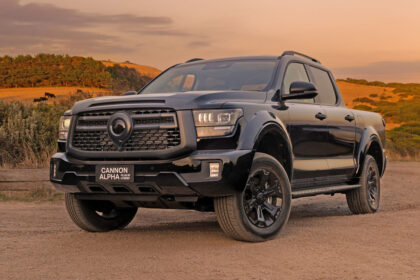Four of the the top-selling brands in August were Chinese brands showing how quickly the market is changing.
As usual Toyota finished first for the month, followed by Ford and Kia, with BYD in 6th, GWM in 8th, MG in 9th and Chery in the 10th position.
It’s the first time Chery, once noted for offering the cheapest car in Australia, has made it into the top 10.
A total of 20,070 Chinese-made vehicles were sold in August, 67 per cent more than in August, 2024.
Makes you wonder where these sales are coming from, because there’s only so much pie to go around.
Tesla is conspicuous by its absence, but is notorious for quitting the Federal Chamber of Automotive Industries (FCAI), which monitors sales, citing “demonstrably false” claims about emissions targets.
Of the mainstream brands Jaguar sales are down 60 per cent, Suzuki sales by 57 per cent and Jeep 48 per cent.
The top three selling cars for August were the Ford Ranger, Toyota Hilux and Toyota RAV4.
Finishing in fourth spot was the MG’s mid-sized offering the five-seat ZS SUV.
Toyota is presumably not too worried by the Chinese threat, with five of the top 10 vehicles coming from its stable.
FCAI chief executive Tony Weber said the figures showed how quickly the industry – and consumers – are adapting to new options.
“The presence of four Chinese brands in the top 10 illustrates the continuing evolution of the automotive landscape in Australia,” he said.
“Consumers have an extraordinary range of vehicles to choose from – more than 400 models, including around 100 EVs”
Overall, SUVs continued to dominate, with 60,495 sales in August representing 60 per cent of the market.
Electric vehicles represented 6.8 per cent of VFACTS-recorded sales in August, while plug-in hybrid electric vehicles accounted for 3.9 per cent.
Ahead of the meeting of the Council of Treasurers this Friday, Mr Weber said the time was right for a federally-led road user charge as a part of broader tax reform in the sector.
“FCAI has long been a supporter of a nationally consistent road user charge that ultimately can be applied to all types of vehicles, not just EVs,” he said.
“As the number of electrified vehicles increases, governments must support a smooth transition away from fuel excise.
“A road user charge is needed to provide an enduring revenue stream to support road and recharging infrastructure,” Mr Weber said.

CHECKOUT: EVs fail range claims ‘real world’ tests show
CHECKOUT: Demand for plug-in hybrids skyrockets










